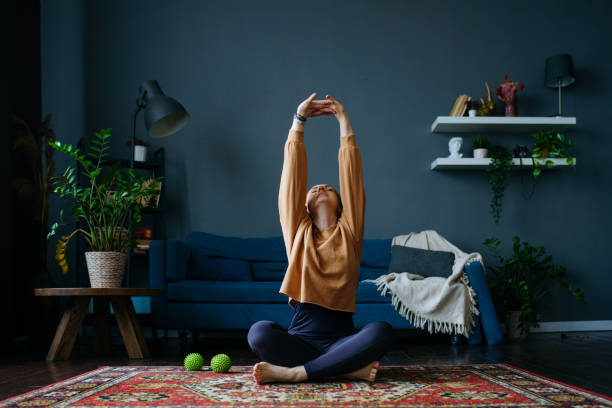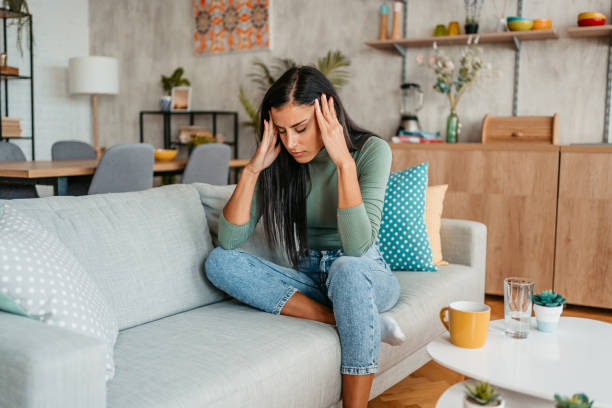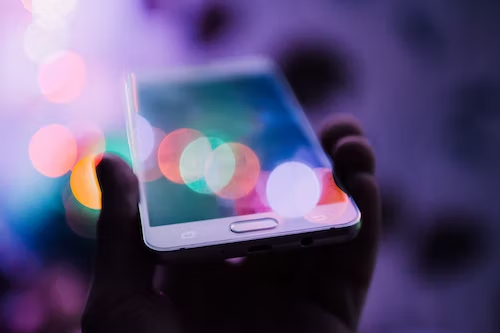ANXIETY SELF-CARE ON A BUDGET: 10 THINGS TO TRY

Anxiety comes with a price tag — literally and figuratively. If you have been diagnosed with an anxiety disorder, chances are your wallet has taken a hit due to co-pays, diagnostic testing, and prescriptions. But there are many self-care options available that are free or low cost.
Here are 10 things to try if you have anxiety:
- Get enough sleep
Most of us are constantly busy and stressed, which can affect our ability to get quality rest. If you suffer from anxiety or depression, it's even more important that you get enough sleep — but that doesn't mean it will be easy.
Sleep is a self-care practice that can help manage stress and improve your mood. It's important for everyone, but especially for people who struggle with mental health conditions like anxiety or depression. While there are many ways to help yourself relax and unwind, getting enough sleep is one of the easiest ways to address stress.
Sleep deprivation might seem like a harmless problem in your life, but it can actually lead to serious health problems like obesity and diabetes. Getting better quality sleep can improve your overall health as well as help regulate your emotions and moods.
- Eat well
Eating well is not a luxury. It’s a necessity. If you have anxiety, eating well is an anxiety self-care on a budget.
Eating well isn’t just about the food itself. It’s also about how you feel when you eat it. When you eat something that makes you feel good, it gives your body the fuel it needs to function at its best. And when your body functions at its best, your mind functions at its best too.
When we eat well, our bodies are able to produce the right amount of hormones and enzymes necessary to keep our organs functioning smoothly. We don’t get sick as often and our energy levels stay up throughout the day. Eating well also helps us better manage our stress levels because when we’re stressed out, it causes our immune system to weaken and makes us more susceptible to illness or injury if we do get sick or injured in some way.
When we don’t eat well (or when we eat poorly), our bodies don’t produce enough of these important chemicals that keep us healthy—and this can lead to all sorts of problems including anxiety issues like panic attacks or social phobia that make it hard for people who suffer from them to leave.
- Exercise regularly
Exercise is a great way to relieve your anxiety and stress, but it can be hard to fit into your budget. If you are suffering from anxiety, we want to encourage you to take a look at the benefits of exercise and how it can help in reducing your symptoms.
Exercise has been proven to improve mental health by reducing anxiety and depression, as well as boosting self-esteem.
The thing about exercise is that it doesn't have to be expensive or time-consuming. You can do simple things like walking, taking the stairs instead of the elevator, or doing stretches while watching TV. These small changes will help you feel better without spending money on expensive gym memberships or going out for expensive workouts.
- Make an art
Art is a form of self-expression that can help you manage your anxiety and feel more in control. It’s a way to work through your feelings, put them into perspective, and come up with creative solutions for dealing with them.
When we create something, we take ownership of it. Even if it’s not perfect, it still has value because it represents our unique perspective and way of seeing things. And when we share our creations with others, they can appreciate our point of view as well as see how far we’ve come since our last piece of art.
It’s important to understand that making art doesn’t have to be an elaborate process or require expensive materials or tools. You don’t need a masterful eye or superior drawing skills either — just an open mind and heart along with some creativity!
- Learn relaxation techniques like yoga or meditation
Meditation is an anxiety self-care strategy that can be free or inexpensive, depending on how you go about it.
Meditation has many benefits, including reducing stress and anxiety, improving focus and concentration, increasing self-awareness and empathy, helping with insomnia and even lowering blood pressure. As an anxiety self-care strategy, meditation can also help you become more mindful of your thoughts and emotions in order to better manage them.
There are many different types of meditation that you can try, including mindfulness meditation, guided visualization and breath work. You may want to experiment with different types to see which one works best for you.
Meditation doesn't require any special equipment or supplies — just a quiet place where you can sit comfortably without being distracted by noise or other people moving around nearby.
- Stay connected with friends and family members who understand your condition
If you're like most people, you've probably been told that the best way to cope with anxiety is by avoiding the things that make you anxious. But what if that advice is wrong?
It's not uncommon for many of us to avoid going out in public or even leaving our homes when we are feeling anxious. But there's no denying that keeping busy and staying connected with our loved ones can be a great way to keep our minds off of our worries.
Not only does staying connected help us feel less alone in our struggles, but it also provides us with a sense of purpose and belonging — both of which are important to maintaining good mental health.
In fact, one study published in Health Psychology found that maintaining close relationships can have a significant impact on overall health and well-being. The researchers found that people who were more socially isolated were more likely to experience feelings of unhappiness, depression or loneliness than those who had strong social ties.
- Practice positive thinking techniques such as mindfulness or cognitive behavioral therapy (CBT)
Mindfulness is a personal skill that you can develop. It involves paying attention to your thoughts, feelings, and experiences in the present moment.
It's a way of being completely present in the here and now – instead of letting your mind wander off into the past or future. When you're mindful, you don't judge yourself for having thoughts or feelings; you simply experience them without getting caught up in them.
The practice of mindfulness has been shown to reduce stress levels and improve mental health. It can also help with physical health conditions like heart disease, cancer and chronic pain.
- Keep a journal or diary
There's a stigma around journaling. People think it's silly or a waste of time, but keeping a journal is an ANXIETY SELF-CARE strategy that you should never underestimate.
Journaling is one of the easiest ways to get in touch with your feelings, work through problems and gain clarity. Your journal should be used as an outlet for any emotions you're feeling — good or bad — and can help you process them so they don't all build up inside you.
If you're struggling with anxiety and find it hard to talk about your feelings, writing them down can be a less intimidating way to express yourself than talking face-to-face with other people. Journaling can also be a great way to express gratitude or celebrate positive events in your life.
- Read a book
Reading is a powerful anxiety self-care strategy. It can reduce stress and help you feel more relaxed, focused, and in control of your life. But if you’re like most people who struggle with anxiety, reading can also be an added expense.
You might be tempted to cut this expense out of your budget. But it’s important to remember that reading is an investment in your future — one that pays off in the form of increased happiness and better mental health.
- Listen to music
Listening to music is a great way to relax, relieve stress and boost your mood. It's also a cost-effective self-care strategy.
Music has been used as a means of therapy since the ancient Greeks. In fact, music therapy was officially recognized by the American Medical Association in 1969. The research is clear: Listening to music can have a positive impact on your mood and mental health.
Music stimulates the brain's pleasure center, which releases dopamine — the feel-good hormone responsible for euphoria and motivation.Studies have shown that listening to music can help regulate emotions and improve sleep quality. Music can even help you lose weight!
Listen to music while you're exercising or doing chores around the house; it'll make time fly by faster while boosting your mood. You may even find yourself dancing along!
The point is, don't be afraid to try out new things to help your anxiety. Most of these things won't cost you a lot of money, but they might just help you feel better.
For more helpful and informative insights, visit here.





